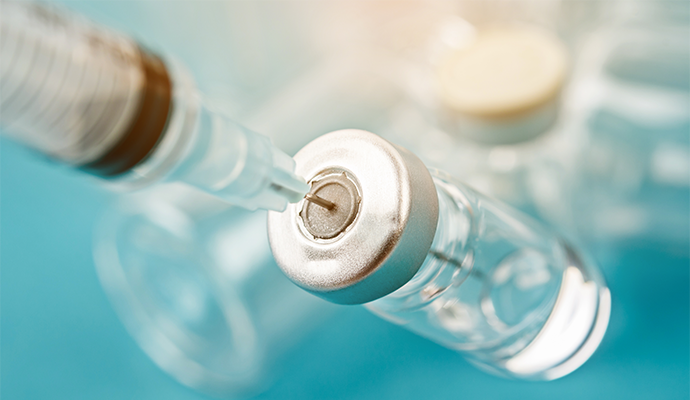Steroid Dexamethasone Reduces COVID-19 Deaths, Initial Data Shows
A randomized clinical trial found that dexamethasone is the first drug proven effective against COVID-19, reducing 28-day mortality rate in one-third of patients.

Source: Getty Images
- Preliminary data from a clinical trial found that a commonly used steroid – dexamethasone – improves survival in hospitalized COVID-19 patients, according to a press release from Oxford University.
For more coronavirus updates, visit our resource page, updated twice daily by Xtelligent Healthcare Media.
“Dexamethasone is the first drug to be shown to improve survival in COVID-19. This is an extremely welcome result. The survival benefit is clear and large in those patients who are sick enough to require oxygen treatment, so dexamethasone should now become standard of care in these patients,” one of the chief investigators of the clinical trial Peter Horby said in the press release.
“Dexamethasone is inexpensive, on the shelf, and can be used immediately to save lives worldwide,” added Horby, professor of emerging infectious diseases in the Nuffield department of medicine at Oxford University.
In March, the randomized clinical trial enrolled over 2104 patients among 175 NHS hospitals in the UK. Patients received 6mg of dexamethasone once per day for ten days. These results were then compared with 4,321 patients who were randomized to receive standard care alone.
Overall, dexamethasone reduced the 28-day mortality rate in one-third of patients (17 percent), with a highly significant trend showing the greatest benefit among those patients requiring ventilation.
Out of individuals who received standard care alone, 28-day mortality rate was highest in those who required ventilation (41 percent). The results were intermediate in patients who required oxygen (25 percent) and lowest among those who did not require any respiratory intervention (13 percent), researchers said.
RECOVERY also tested other potential COVID-19 treatments among a total of 11,500 patients, including
Over the past few months, RECOVERY enrolled a total of 11,500 patients to be randomized to potential COVID-19 treatments aside from low-dose dexamethasone, including HIV medication lopinavir-reitonavir, the antibiotic azithromycin, anti-inflammatory injection tocilizumab, and hydroxychloroquine, which has since been deemed ineffective against COVID-19.
Researchers also tested the efficacy of convalescent plasma.
“Since the appearance of COVID-19 six months ago, the search has been on for treatments that can improve survival, particularly in the sickest patients. These preliminary results from the RECOVERY trial are very clear – dexamethasone reduces the risk of death among patients with severe respiratory complications,” said Martin Landray, a chief investigator of RECOVERY and professor of medicine and epidemiology at the Nuffield department of population health.
The preliminary results, which have only been published in a the press release thus far, highlight the importance of doing high-quality clinical trials and basing decisions of the result of those trials, said the UK Government’s chief scientific advisor, Sir Patrick Vallance, in response to the news.
“COVID-19 is a global disease – it is fantastic that the first treatment demonstrated to reduce mortality is one that is instantly available and affordable worldwide,” he said.
Although many potential COVID-19 drugs and vaccines have been tested in clinical trials, none have shown great success in patients infected with the virus.
In March, a clinical trial found that hospitalized patients with COVID-19 experienced no benefits in lopinavir-ritonavir treatment compared to standard care. The standard care group, lopinavir patients saw one less day for clinical improvement at 15 days, compared with 16 days in the standard-care group.
Because of the modest improvement period, patients in the lopinavir-ritonavir group had a shorter stay in the intensive care unit (ICU) than those in the standard care group, at six and 11 days, respectively.
But almost half (48.4) patients in the lopinavir-ritonavir group and 49.5 in the standard-care group saw gastrointestinal adverse events such as nausea, vomiting, and diarrhea
Most recently, FDA revoked the Emergency Use Authorization (EUA) for hydroxychloroquine due to newly gathered information including clinical trial data that led the agency to believe the drug may not be effective to treat COVID-19.
FDA noted that EUA’s are revoked when the Act no longer exists, the criteria under 564(c) of the Act for issuance of such authorizations are no longer met, or other circumstances that make revisions or revocation appropriate to protect the public health or safety.
The agency concludes that these criteria are no longer met for oral formulations of HCQ and CQ, and it is not reasonable to believe that the known and potential benefits of these products outweigh their known and potential risks, FDA said in the announcement.
